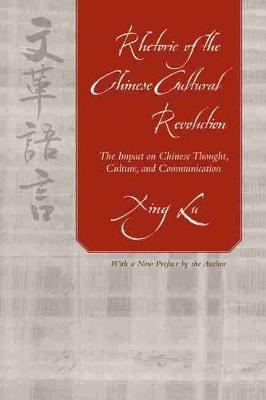Studies in Rhetoric/Communication
1 total work
Now known to the Chinese as the ""ten years of chaos,"" the Chinese Cultural Revolution (1966-1976) brought death to thousands of Chinese and persecution to millions. Rhetoric of the Chinese Cultural Revolution identifies the rhetorical features and explores the persuasive effects of political language and symbolic practices during the period. Xing Lu examines how leaders of the Communist Party constructed and enacted a rhetoric in political contexts to legitimize power and violence and to dehumanize a group of people identified as class enemies. Lu provides close readings of the movement's primary texts - political slogans, official propaganda, wall posters, and the lyrics of mass songs and model operas. She also scrutinizes such ritualistic practices as the loyalty dance, denunciation rallies, political study sessions, and criticism and self-criticism meetings. Lu enriches her rhetorical analyses of these texts with her own story and that of her family, as well as with interviews conducted in China and the United States with persons who experienced the Cultural Revolution during their teenage years. Through rhetorical analyses Lu addresses the questions of why such a cultural holoc
